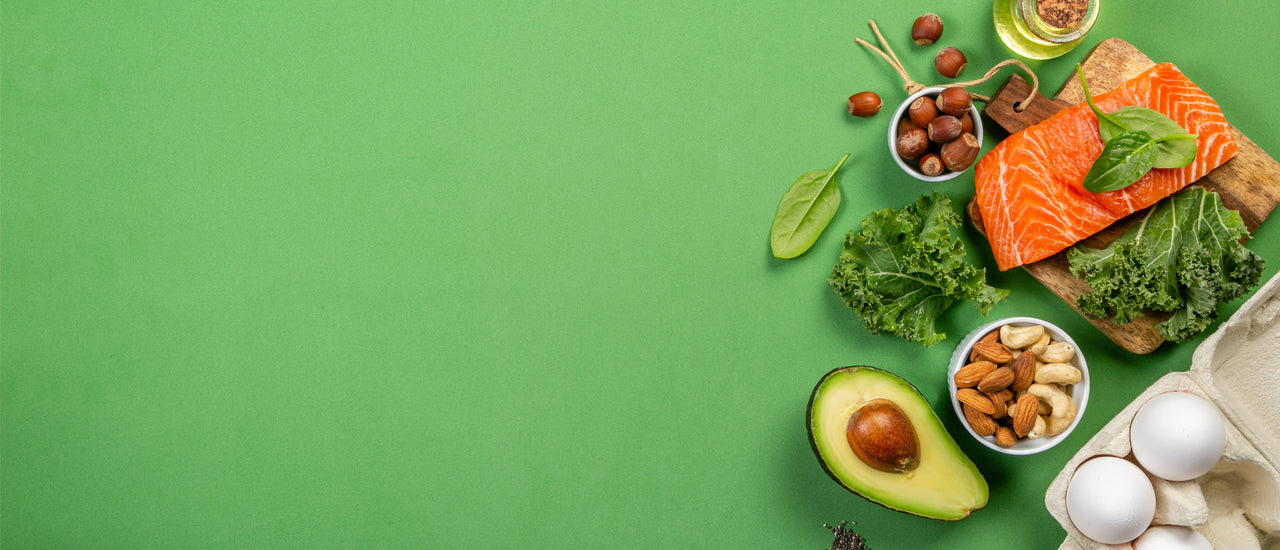By Awesome Supplements, Read time: 6 minutes
If you’ve ever tried dieting before, you’ll know what we mean when we say it can end up being a little stressful.
Often, when we want to lose weight, we cut out all the foods we love, commit to spending most of our free time in the gym, give up alcohol and generally become a bit stressed and fed up after a couple of weeks.
But it doesn’t need to be like this. We can lose weight by making small yet powerful lifestyle changes that don’t mean putting a stop to everything we enjoy doing.
Interested?
Read on for our seven easy tips for stress-free dieting.
Tip 1 - Get your steps in!
Have you heard the term energy balance? In a nutshell, we put energy into our body through food and drink, and expend it by existing and then being physically active (there’s a little more to it than this but this is all you need to worry about in terms of weight loss). Put more energy into our body than we require, and we gain weight. Put around the same in and we maintain our weight. Put less in and we lose weight. But we can also increase the amount of energy we expend by simply moving more.
Now, this doesn’t mean spending hours at the gym (unless you really want to). Instead, we’re talking about simply walking. It doesn’t cost anything and can be the most satisfying, stress-busting form of exercise out there. If you’re really serious about losing weight, aim to get right up to 15,000 steps or even a little beyond. Of course, if you’re currently only managing 4000 steps a day, start small and increase your steps as your confidence grows. You don’t have to go from 0-100 overnight.
If you don’t have a watch that counts your steps, just take your smart phone with you. Most phones nowadays will track your activity (just be careful as these apps can RINSE your battery life).

Tip 2 - Be aware of calories
We mentioned energy balance earlier. It’s all very well increasing your activity levels, but what if you’re still eating too much? You you don’t need to meticulously track every single morsel that goes into your mouth, but being aware of the number of calories your body requires is going to give you a good baseline figure to work from.

We all have our own energy requirements. These are based on your weight, height, age, sex and your activity levels (if you sit down all day at work, you’ll need less that someone who walks around for a living). To get an idea of your body’s requirements, head to our calorie calculator and use this as a starting point. By inputting a few basic details, you’ll be given a calorie goal to work around. Just by then starting to pay attention to food packaging and even restaurant menus, you’ll start to have some awareness of what you are putting into your body versus what it requires. This can be life changing!
Tip 3 - Eat your protein!
We have said that we need to be roughly aware of how many calories our body requires, but it’s also worth stating that what we eat can have a massive effect on our weight loss. Often, our instinct when considering weight loss is that we have to eat salad. And whilst salads can be delicious and form a great part of a balanced diet, we mustn’t forget the food type which keeps us fuller for longer and is (generally) low in calories - protein. Ideally, we are talking lean meats like chicken and turkey, fish, seafood, eggs and beans and pulses. Our general advice is to eat protein with every meal and have a protein-based snack as well. Research has shown that it is safe to eat as much as 4.4 grams of protein per kilo of body weight. However, anywhere between 1 – 1.6g per kilo of body weight has been shown to have a positive effect on weight loss, with higher amounts (up to around 2.2g per kilo) being good for those with a lot of muscle.
If you’re pushed for time or are often on the go, having a protein bar or a protein shake in your bag can help fill you up whilst taking you to the protein goal you’re after.

Tip 4 - Get organised!
How organised are you? Do you plan your meals, or do you get home tired, hungry and clueless about what you’re going to eat? If it’s the latter, the chances are you’ll find dieting harder than if you were organised. Failing to plan can often lead to eating something quick and easy, which often is high in calories, fat, sugar and salt and low in protein. So, we eat it, feel satisfied for a while, then find ourselves opening the fridge looking for something else, as we have spiked our energy levels quickly and then feel the effects.

Spending half an hour to think about what you’d like to eat during the week, planning what you need to buy then going out to buy this food can be critical in keeping you on track. If all this sounds a bit much immediately, why not commit to trying to plan 3 - 4 meals a week and building on from there?
Tip 5 - Keep busy
Keep yourself busy. It’s no secret that many of us eat simply out of boredom. Watching tv and driving are two big ways for us to consume a ton of calories without being aware. It’s called mindless eating. By keeping ourselves occupied however, it can be quite difficult to even think about snacking! Our top tips are to download a podcast or a great book, put your trainers on and go for an evening walk (and get those steps in at the same time!), do a little bit of gardening, wash the car or even pick up the phone and get engrossed in a conversation with your bestie! The more you can keep yourself busy, the less time there is to head to the fridge and start working your way through a bar of chocolate.
Why not write yourself a list of jobs to do around the house and commit to ticking these off when boredom sets in?

Tip 6 - Review your previous attempts
We started this article by saying that you may have been on a diet before. Ask anyone around you about dieting and you’ll be hard pressed to find anyone who has never tried to lose weight. Some people will tell you they have been on ten or more different diets in their lifetime. If you fall into this category, our tip would be to ask yourself what went wrong during previous weight loss attempts.
Did you eat so little that you became too hungry? Did you cut out everything you love and get bored? Did you commit to going to the gym five times a week and give up when you couldn’t achieve this target? Asking yourself what went wrong before, can help your new diet be stress-free. You’ll be in a better mindset from the outset, as you’ll have identified where you have failed in previous attempts.

Tip 7 - The key ingredient - sleep
We’ve kept this one until last but it really is key is weight loss - getting enough sleep. Poor sleep can have a negative effect on weight loss for so many reasons. Respecting our body and giving it adequate time to rest and recover is vital. If we don’t sleep that well, we become tired and irritable the next day. This can often lead us to making poor food choices, simply because we don’t have the energy to think clearly, let alone start cooking. So put yourself first, get to bed at a decent time and watch your weight loss goal reach fruition.


